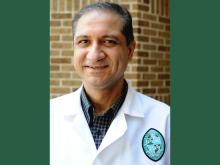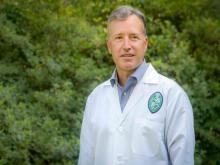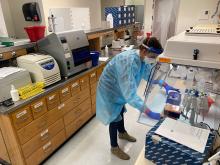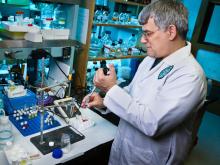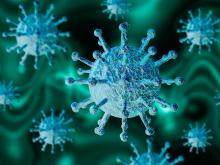Research In Real Time News
Health, News Releases, Research in Real Time
Tulane scientists find a switch to flip and turn off breast cancer growth and spread
Tulane scientists find a switch to flip and turn off breast cancer growth and spread
Health, Research in Real Time
Tulane researchers discover new type of kidney cells key to fighting infection
Tulane researchers discover new type of kidney cells key to fighting infection
COVID-19, Health, News Releases, Research in Real Time
From proposals to funded research in 48 hours: Tulane scientists receive Fast Grants
From proposals to funded research in 48 hours: Tulane scientists receive Fast Grants
COVID-19, News Releases, Research in Real Time
Tulane to use artificial intelligence to study how nation’s schools are responding to coronavirus
Tulane to use artificial intelligence to study how nation’s schools are responding to coronavirus
COVID-19, Health, News Releases, Research in Real Time
Tulane to study whether anti-malarial drug blocks spread of COVID-19
Tulane to study whether anti-malarial drug blocks spread of COVID-19
COVID-19, Health, News Releases, Research in Real Time
Tulane University awarded $10.3 million to test therapeutics, vaccines for novel coronavirus
Tulane University awarded $10.3 million to test therapeutics, vaccines for novel coronavirus
COVID-19, Health, News Releases, Research in Real Time, Science
School of Medicine launches COVID-19 testing lab to improve capacity
School of Medicine launches COVID-19 testing lab to improve capacity
Health, News Releases, Research in Real Time
Tulane researchers discover possible pathways to treating drug-resistant infections
Tulane researchers discover possible pathways to treating drug-resistant infections
COVID-19, News Releases, Research in Real Time, Science
Study: Coronavirus pandemic sparked by nature, not bioengineering
Study: Coronavirus pandemic sparked by nature, not bioengineering
